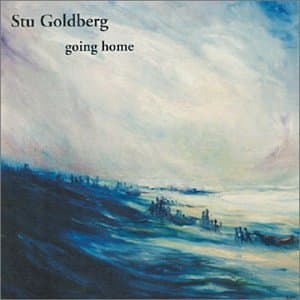
Stu Goldberg, Going Home
Value For Money
Stu Goldberg, Going Home
When you purchase through links on our site, we may earn an affiliate commission. Here's how it works.

User Reviews
Value For Money
Gloriously Energetic And Exciting Modern Bebop Lin
Gloriously energetic and exciting modern bebop lines from Stu Goldberg and company, managing to combine the flippancy of Charles Lloyd's Forest Flower with the cocktail party calypso of Coltrane's masterpiece A Love Supreme, then extention to a denser contemporary reading, incorporating a refinement of melody, restrained bass ostinati and thrusting unison motifs. For anyone wanting to hear communication in the quartet setting at it's best then they need to reach for this album and take a listen to the interplay between soloist and rhythm section. Exphasis and crescendo come from Dave Renick's cymbal work, tumbling the brothers Golberg's (Stu: piano, Kenny: sax and flute) solo lines deep into the harmonious core, laid bare on the bones of Jeff Falkner's spacious bass.
A further reference to Keith Jarrett (remember his historic stint with Lloyd, particularly their set at Monterey in 1966) are the two languid closing pieces; the penultimate is more neoclassical in design and bluesy in parts, the final title piece places melody and romance over all and provides a sadly topical echo of Dudley Moore's Six Weeks from the film score of the same name (captured on the album Songs Without Words).
Amongst Mahavishnu Orchestra fans, Stu Goldberg has received mixed reviews. Those who have never been able to accept the demise of the original line-up tend not to rate the band's future incarnations, including the subduction of Jan Hammer in preference for Goldberg on keyboards. Others, who would accept everything John McLaughlin, even the move to the patched/synthesized guitar sound, have no problem with the recordings by the post-Shakti Mahavishnu Orchestra, and the processed sound directions in which they travelled. In fact, even though Goldberg's stint with John McLaughlin lasted almost five years, the only album with him featuring in the Mahavishnu Orchestra is 1975's Inner Worlds, which amongst the die-hard critics is favoured above the later Mahavishnu (1984) and Adventures In Radioland (1986), probably as Goldberg is the only new member enlisted since the previous year's Visions Of The Emerald Beyond. By the time of the two later albums, McLaughlin, and briefly Billy Cobham for one album, are the only connection with what had transpired in the revolutionary jazz and rock fusion movement from the early 70s. Therefore, perhaps some of the mud that has stuck to Goldberg may be fallout from the general malediction targeted at the death of fusion and jazz in the 80s. Worth noting is that Goldberg did put in fine performances on Electric Guitarist, a long-term favourite among the JM fanbase and Electric Dreams, which contains classic versions of Guardian Angels and The Dark Prince.
Now moving beyond his earlier use of synthesed keyboards and shining in his virtuosity of the acoustic instrument, Goldberg takes a look at the past, applies a modern twist and gives us an excellent album to enjoy and savour.
Q&A
There are no questions yet. Be the first to ask a question.